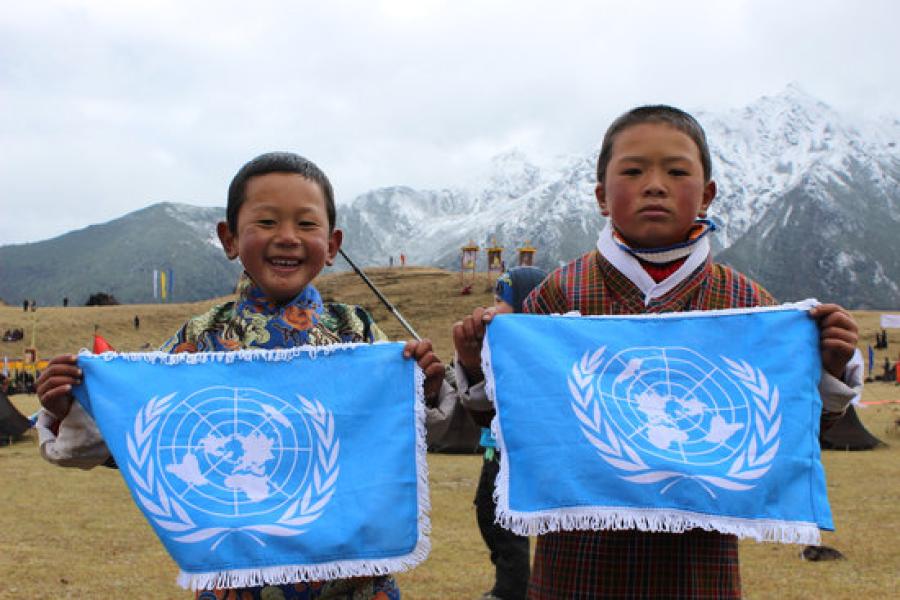About the UN in Bhutan
The United Nations (UN) is an international organization founded in 1945. Currently made up of 193 Member States, the mission and work of the United Nations are guided by the purposes and principles contained in its founding Charter.
On September 21, 1971, the Royal Government of Bhutan became the 128th member of the United Nations. The Office of the United Nations in Bhutan was established in early 1974. Since then, the country has been home to many UN agencies, funds and programmes that together support the Government in delivering national development needs and improving the socio-economic conditions of the people of Bhutan.

This United Nations Sustainable Development Cooperation Framework (Cooperation Framework) for 2024 - 2028 articulates the collective vision and contribution of the United Nations system to support Bhutan in accelerating actions towards achieving its national development priorities and the 2030 Agenda for Sustainable Development.
The formulation process for the Cooperation Framework was inclusive, participatory, and evidence-based, involving Government, the United Nations system and non-state actors, including the private sector, civil society organisations, youth, and academia, among others. It was developed against the backdrop of the preparation of Bhutan’s draft 13th Five-Year Plan for 2024 - 2029. The draft Plan will contribute towards the realisation of Bhutan’s vision for 2034 of a “High-Income Economy” anchored on three pillars – Prosperity, People and Progress. The vision is framed in a 10-year perspective plan aiming to transform Bhutan into a globally competitive and prosperous high-income country, providing a high quality of life and high levels of income to all citizens whilst maintaining its security and cultural heritage. The Government has identified economic development, social development, security and governance as the four strategic objectives of its vision for 2034.
Within the context of the country’s transformative agenda, the theory of change for the Cooperation Framework outlines the pathway towards a vision where “all people in Bhutan, especially the most vulnerable, contribute to and benefit from sustainable development, leading to the achievement of the SDGs and to a healthy, prosperous and secure country.” This is based on the logic that is transformative and inclusive governance is an essential requirement for accelerated, shared prosperity in a
sustainable environment and for building human well-being and resilience.
The Cooperation Framework is structured around four interrelated and mutually reinforcing Strategic Priorities where the UN system will concentrate its expertise to support Bhutan to make transformational and accelerated progress in the economic, social, environmental and governance dimensions of sustainable development.
They are:
- Strategic Priority 1: Sustainable Economic Development & Diversification and Shared Prosperity
- Strategic Priority 2: Equitable Human Development and Well-Being Across the Life Course
- Strategic Priority 3: Sustainable And Healthy Environment, Resilience to Disasters and Climate Change
- Strategic Priority 4: Inclusive, Transparent and Accountable Governance and Rule of Law


















